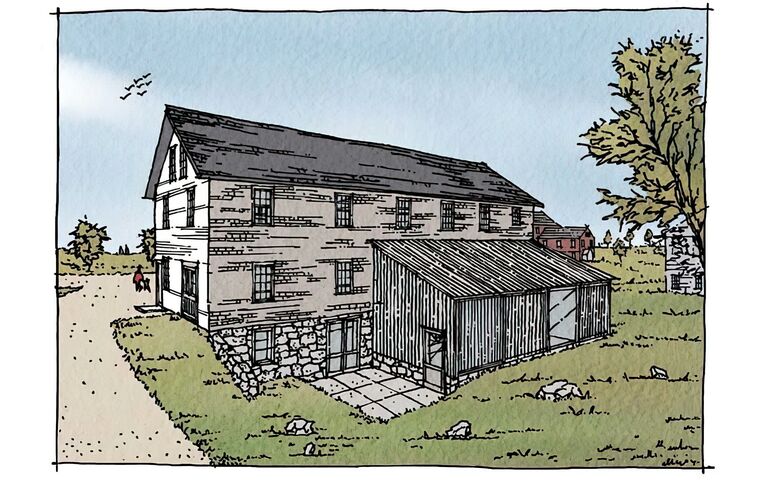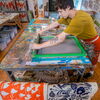$750K grant will help create historical makers space at New Gloucester's Shaker Village
 Courtesy / Shaker Village
The Herb House at Shaker Village was awarded a $750,000 grant to support its three-year rehabilitation project.
Courtesy / Shaker Village
The Herb House at Shaker Village was awarded a $750,000 grant to support its three-year rehabilitation project.
A project to rehabilitate a 198-year-old building into a year-round education and cultural space at Shaker Village in New Gloucester has received a $750,000 grant.
The National Endowment for the Humanities on Friday announced more than $33 million in grant awards for 245 projects across the country. The award to the United Society of Shakers for work on its Herb House Cultural & Traditional Arts Center was one of only two grants in Maine.
Another grant of $250,000 was awarded to the Portland Maine Humanities Council to introduce Afrofuturism to residents of Maine through reading and discussion programs, speakers’ bureau events, and statewide community engagement events.
The Herb House, built in 1824, was one of eight projects nationally that received the maximum grant amount of $750,000. A spokesperson from the NEH said the decision was made by unanimous approval and the review panelists noted the project’s degree of thorough, advanced planning.
The village was established in 1783 and is home to the world’s only active Shaker community. The village has two residents, Brother Arnold Hadd and Sister June Carpenter. The United Society of Believers, a religious group commonly called Shakers, was founded in 1747 in Manchester, England.
This is the first time the Shaker Village has sought federal funding and is also the largest amount the village has ever received. Matching funds will be raised in a separate capital campaign for the project. The total cost of the three-year renovation project is estimated at $4.3 million.
“It’s really going to happen,” said Shaker Museum and Library Director Michael Graham. “It’s been years in planning, designing, and development with the Shakers and an incredibly committed, harmonious team of architects and consultants. We’ve all been so excited by this project and the opportunity to revive a nearly derelict building for continuing use.”
“It has been a chance to present living Shaker heritage with all of the sights, sounds, fragrances, feelings, and images that leave lasting memories on people for years to come. It will be a place where Shakers and others can work and learn together. Now, the NEH has recognized that these Herb House programs will promote the humanities with significance of a national scale. That’s amazing. It’s such a strengthening, incredible distinction to receive for this special project."
The Herb House will become Shaker Village’s first large-scale year-round space with more than 8,000 square-feet of production rooms, a commercial kitchen and traditional arts studio-classrooms. Basketry, soap-making, textile arts, bookbinding, broom-making, printing, garden design, and herbal wreaths are just a few of the dozens of classes that will be offered.
The Shakers plan to market the Herb House to local audiences and to promote its cultural learning experiences in line with the school calendar and nearly 100,000 students within 60 miles of Shaker Village.
The rehabilitated Herb House will provide year-round educational experiences to audiences of all types and ages, and an important source of income for Shaker Village and independent traditional arts instructors, according to the Shaker Village's website.
Free self-guided public access to daily operations, free folk traditions demonstrations, expanded volunteer opportunities, new community alliances, and a wide variety of master classes will be available. They will be focused on herbalism and agriculture, culinary arts, and traditional crafts.
The purpose of the Infrastructure and Capacity Building Challenge Grant is to “strengthen the institutional base of the humanities by enabling infrastructure development and capacity building. Awards of federal matching funds aim to help institutions secure long-term support for their core activities and expand efforts to preserve and create access to outstanding humanities materials,” the NEH said.
Lead architects from Red Dot Studio have worked on the Herb House project since 2019.










0 Comments